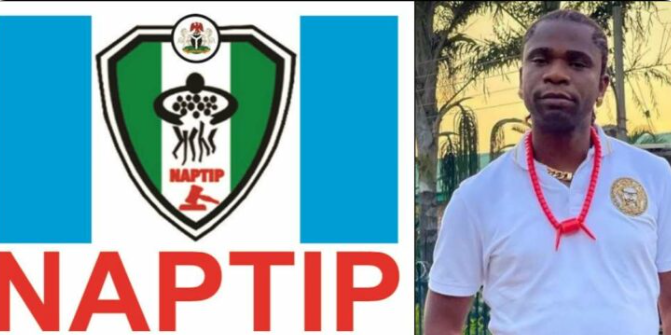
Veteran Actor Osita Iheme Claps Back at Pastor Ibiyeomie: \"Jesus Has Nothing to Do with Your Financial Status\"
Nollywood star Osita Iheme, widely recognized for his iconic role in Aki na Ukwa, recently took to X to challenge a controversial statement made by Pastor David Ibiyeomie of Salvation Ministries. The pastor, in a sermon that gained significant attention online, claimed that Jesus Christ disapproved of poverty, pointing out
Nollywood star Osita Iheme, widely recognized for his iconic role in Aki na Ukwa, recently took to X to challenge a controversial statement made by Pastor David Ibiyeomie of Salvation Ministries.
The pastor, in a sermon that gained significant attention online, claimed that Jesus Christ disapproved of poverty, pointing out that the Messiah never visited the homes of the poor during His time on Earth.
This assertion sparked widespread debate, and Iheme, known for his thought-provoking perspectives, didn’t hold back in his response.
Sharing his thoughts on the platform, the actor firmly stated that Jesus’ teachings and actions have no connection to an individual’s financial standing, directly contradicting the pastor’s narrative.
The controversy began when Pastor Ibiyeomie, a prominent Nigerian televangelist and founder of Salvation Ministries based in Port Harcourt, delivered a sermon on April 13, 2025.
In the widely circulated video, he argued that Jesus’ supposed avoidance of poor households was a divine sign of disapproval toward poverty.
This perspective aligns with the prosperity gospel, a popular yet divisive doctrine in Nigeria that equates spiritual favor with material wealth.
However, Iheme’s post on X, which garnered 1,587 views shortly after being shared by the Linda Ikeji Blog, pushed back against this interpretation.
Using the hashtag #GODISTHEGREATEST, Iheme emphasized that one’s financial status is irrelevant to their relationship with Jesus, urging a reevaluation of such teachings.
The debate didn’t end with Iheme’s clapback. Catholic priest Father Kelvin Ugwu also joined the conversation, offering a scriptural counterargument.
He highlighted that Jesus frequently associated with society’s most marginalized groups, including the poor, lepers, and outcasts, as seen in various New Testament accounts.
For instance, Jesus dined with tax collectors like Zacchaeus and ministered to those in need, showing no preference for the wealthy.
Father Ugwu’s response underscored a broader critique of the prosperity gospel, which often flourishes in Nigeria amidst widespread economic struggles.
Critics argue that such teachings can exploit vulnerable populations, particularly in a country where systemic issues like poor governance exacerbate poverty.
This clash of perspectives reflects a deeper tension in Nigeria’s religious landscape.
The prosperity gospel, embraced by many Pentecostal churches, promises wealth and success as signs of divine blessing, yet it often overlooks the structural inequalities that keep millions in hardship.
Iheme’s bold statement and Father Ugwu’s rebuttal highlight the need for a more nuanced understanding of faith—one that prioritizes compassion and inclusivity over material wealth.
As this debate continues to unfold, it raises critical questions about the role of religion in addressing social and economic challenges in Nigeria.
Share this post
Related Posts

“See What Ghanaians Have Caused”: Singer Teni Blames Ghanaians for Super Eagles’ Loss to Morocco
Nigerian singer Teni, known for her candid social media presence and playful commentary, has sparked...

“More Than a Certificate: Why Nigerians Still Celebrate Weddings Like Sacred Milestones”
A familiar cultural debate resurfaced on Nigerian social media this week after a self-described feminist...

Shockwaves in the Entertainment World: Speed Darlington Summoned by NAPTIP Over Shocking Allegations of Child Abuse
The Nigerian entertainment industry was thrown into turmoil this week as controversial musician and social...